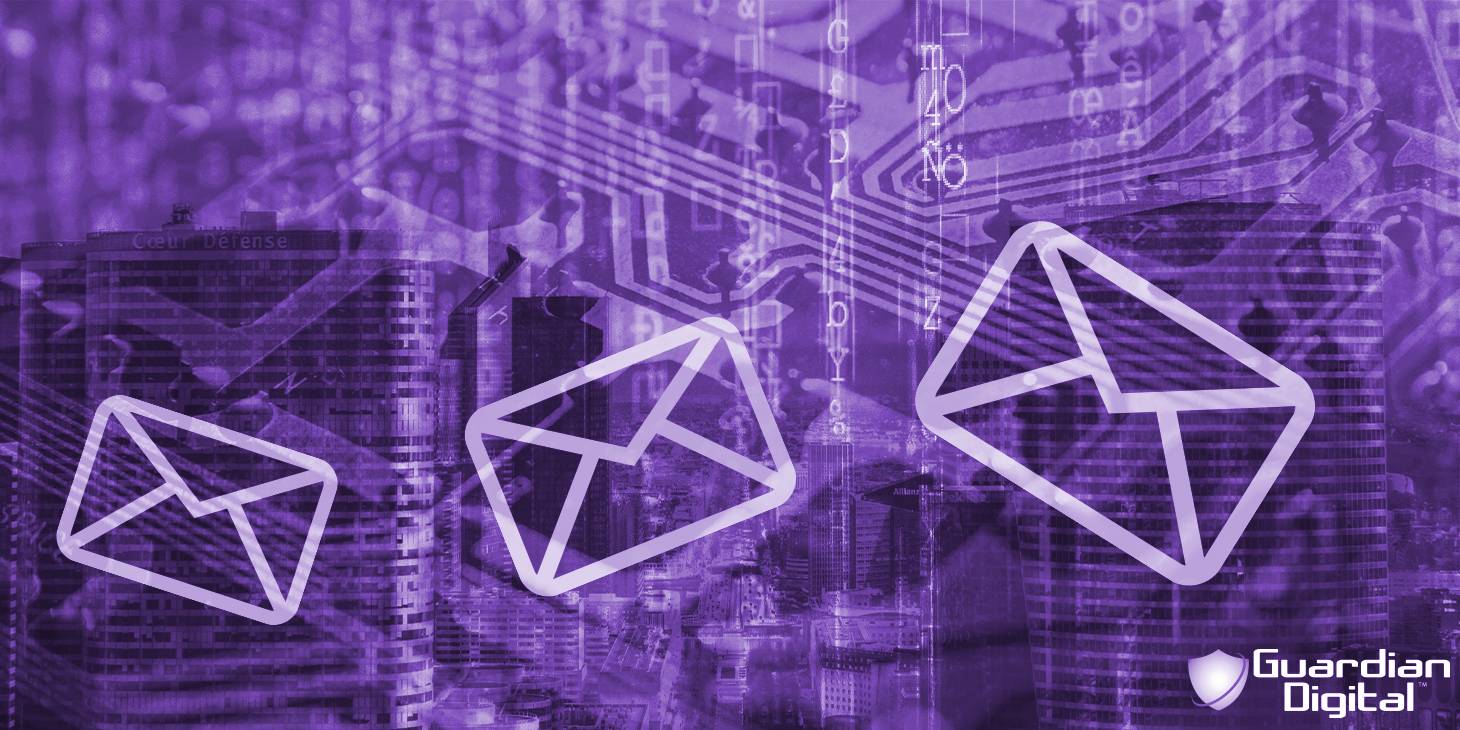
What Is Email Encryption?
Email encryption is an email security strategy that protects sensitive information through coding. You can encode the content in a message so only your intended recipient can view the information. This essential aspect of online safety can safeguard your financials, customer records, and intellectual property, making you less likely to face data loss, Business Email Compromise, and account takeovers. Unfortunately, companies do not consistently implement and configure email encryption to its fullest extent, so users might have a false sense of security while at risk of all email attack types. Let’s review email encryption so you understand it when integrating it into your business.
How Does Email Encryption Work?
When using email encryption, your server encodes all messages so only the sender and recipient can see the data within the email. You will need to install email authentication protocols alongside email encryption so your employees have the codes to access the data in an email. SPF, DKIM, and DMARC email authentication options effectively combat sender fraud and prioritize email protection for your business (more on this later).
Why Should I Encrypt Email? Why Is It Important?
Encrypting your email guarantees safety for all online interactions you and your employees exchange within the company and with external contacts. Cybercriminals come up with more creative forms of attack every day, and having these tactics in place before an attempt can be the one thing you need to prevent these email security issues from ever reaching your system. Phishing email attacks, Business Email Compromise, and CEO fraud focus on tricking users into responding quickly and sending over sensitive data while unknowingly trusting the threat actor with said information.
What Happens If You Do Not Encrypt Email?
Without email encryption, you are more likely to face an email threat that can damage your system. These social engineering email security breaches can result in data loss, reputational damage, significant downtime, and decreased clientele. Therefore, email encryption before an attack can reach your system protects your business from problems that would cost your company a lot of time, energy, and money.
What Are the Benefits of Email Encryption?
There are a variety of security pros to implementing email encryption into your email security software and practices. Here are a few of these benefits:
- Prevent data loss by keeping information protected behind coding that only your senders and recipients have passwords to reach.
- Maintain integrity for your company by stopping unauthorized access to messages avoiding email alterations, interceptions, and hacks that can lead to malware attacks.
- Follow legal and regulatory requirements for financial and health records easily, knowing that your email security services are compliant.
- Verify messages easily so your clients and employees can trust the emails they receive.
- Boost your business’ reputation by promoting your web and email security dedication.
These advantages, among others, are crucial to keeping your organization on top of email protection, ensuring you can thrive for many years.
How Can I Encrypt Email? What Are the Different Types of Email Encryption?
Here are the options we suggest you consider when implementing email encryption into your business’s server:
- What Is SPF in Cybersecurity? Sender Policy Framework (SPF) filters through your messages to quarantine emails that are not trustworthy. SPF can protect against email spoofing to keep your online exchanges safe.
- What is DKIM in Cybersecurity? DomainKeys Identified Mail (DKIM) verifies a company domain when sorting messages into “trusted” and “untrusted” categories that make sure that the IP address, sender name, and domain match the identification that the email claims.
- What is DMARC in Cybersecurity? Domain-based Message Authentication, Reporting, and Conformance (DMARC) combines the capabilities of SPF and DKIM to boost your web and email security and prevent you from facing data loss from opening spoofed emails and other phishing email attacks.
How Does Guardian Digital EnGarde Cloud Email Security Secure Business Email?
Guardian Digital has an email encryption solution embedded into its EnGarde Cloud Email Security email protection service. EnGarde’s features include multiple layers of advanced encryption technologies that can secure communications and prevent sophisticated attacks. This defense-in-depth approach to email security is vital for combating malware ransomware, spear phishing emails, Business Email Compromise (BEC), and other email attack types. This end-to-end protection service utilizes SPF, DKIM, and DMARC to stop phishing emails from reaching and harming your servers, employees, and clients.
Other FAQs
- What Is Guardian Digital EnGarde Cloud Email Security?
- FAQs: What Are Some Examples of Malicious Code?
- How to Properly Scan Your Windows Computer for Malware & Remove Malware from Your PC
- What Should I Do if I Accidentally Clicked on a Phishing Link?
- FAQs: What Are Denial of Service (DoS) Attacks?
- FAQs: Why Outsource Businesses Email Security?
- What Is Domain Spoofing?
- What Are Insider Threats & How Can You Reduce Your Risk?
- The Silent Assassins: How Impersonation Attacks Target CEOs via Email
- How Can I Choose the Right Email Security Service for My Organization?